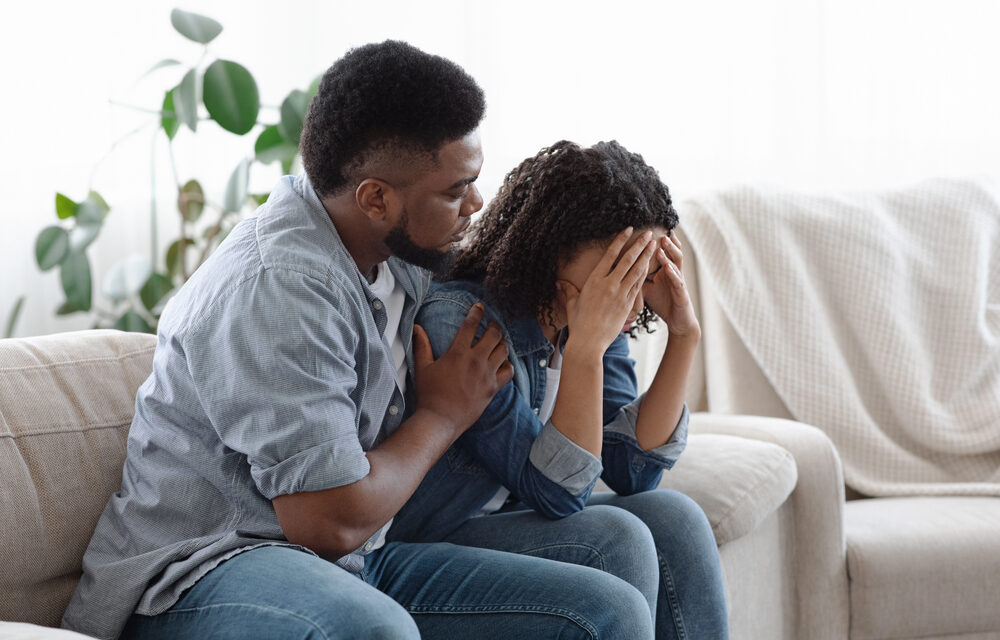Symptoms of emotional dependency can significantly impact a marriage. It describes a situation where one partner relies heavily on the other for emotional support. This dependency can lead to various challenges and can create an imbalance in the relationship. Understanding the symptoms of emotional dependency is crucial for you and your partner. Recognizing these signs early can help address them before they harm your marriage.
Understanding the Signs of Emotional Dependency
Signs of emotional dependency often appear as clinginess or fear of abandonment. If you feel anxious when your partner is away or constantly seek reassurance, you may be experiencing emotional dependency. It’s essential to be aware of these feelings. They may cause strain on your relationship and push your partner away, rather than bringing you closer together. Addressing these feelings together can strengthen your bond.
The Effects on Marriage
Emotional dependency in relationships can lead to a loss of identity. One partner may feel they must sacrifice their own needs to support the other. This can create resentment over time. Couples may find themselves arguing over small issues, which can stem from underlying emotional dependency. It’s vital to support each other while maintaining individual identities. Healthy boundaries are essential for a thriving marriage.
What Causes Emotional Dependency?
What causes emotional dependency can vary from person to person. Often, past experiences, such as childhood or previous relationships, play a significant role. You might fear getting hurt or abandoned, leading to a reliance on your partner. Understanding these roots can provide insights into your behavior. When both partners are aware of these influences, they can work together on healing and building trust.
Overcoming Emotional Dependency
Overcoming emotional dependency is possible, but it requires effort and commitment from both partners. Start by communicating openly about your feelings. Discuss your challenges and fears without blame. Consider seeking professional help, such as couple’s therapy, to guide your journey. Therapy can be incredibly supportive as you learn to build a healthier relationship with yourself and your partner.
Identifying Symptoms of Emotional Instability
Symptoms of emotional instability often accompany emotional dependency. These can include mood swings, anxiety, or extreme reactions to stress. Recognizing these signs is vital in understanding your emotional health. Consider journaling or talking to someone you trust about your feelings. This practice can bring awareness to your emotional state, helping you manage it better.
Exploring Emotional Dependency Psychology
Emotional dependency psychology provides insights into why we may feel this way. Learning more about psychological patterns can empower you to change them. You may find that understanding these concepts helps you see your relationship in a new light. This knowledge can be a stepping stone to healing and growth for both you and your partner.
Emotional Dependency vs. Codependency
Emotional dependency vs codependency can sometimes be confusing. While both involve reliance on a partner, codependency often includes enabling behaviors. In emotional dependency, one partner feels a strong need for emotional support without the unhealthy patterns associated with codependency. Recognizing the differences can help you identify your relationship dynamics and work toward healthier interactions.
Examples of Emotional Dependency
Examples of emotional dependency can include needing constant validation or feeling lost without your partner. Perhaps you feel you cannot enjoy activities without them. These behaviors indicate reliance, which can strain your marriage. Understanding these examples can help you make necessary changes to foster independence while remaining connected.
Why Do I Have Emotional Dependency?
If you find yourself wondering, “Why do I have emotional dependency?” it may relate to your history or previous relationship patterns. Feeling uncertain about your worth can lead to seeking validation from your partner. It’s essential to remember that you are worthy of love and support on your own. This realization can be transformative and liberating for both you and your marriage.
Is Emotional Dependency Bad?
Is emotional dependency bad for your marriage? It can be detrimental if unrecognized and unchecked. The key is to understand and address it before it leads to deeper issues. Developing healthy communication and boundaries can significantly improve your relationship. By working together, you both can create a nurturing environment where you feel secure and valued.
Final Thoughts on Overcoming Dependency
In helping each other overcome emotional dependency, open communication is vital. Express your feelings without fear of judgment. Together, you can create a safe space for both partners. Remember, building independence takes time, but the rewards are worth it. A balanced relationship allows both partners to thrive and feel fulfilled.








